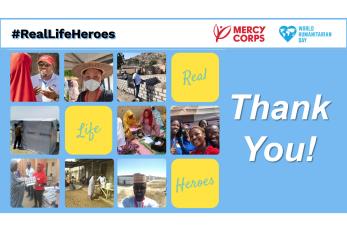World Humanitarian Day 2020: Voices from the field
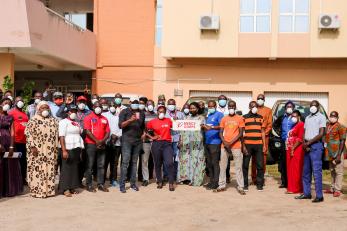
On World Humanitarian Day, August 19, we pay tribute to #RealLifeHeroes - humanitarians and front-line workers all over the world who are doing extraordinary things in extraordinary times to help people whose lives have been upended by crises.
Mercy Corps is working in 40 of these countries as well as in a further nine countries that have been catapulted into humanitarian need by the COVID‑19 pandemic. This year, World Humanitarian Day comes as the world continues to fight the pandemic. We pay a special tribute to health workers and front‑line workers providing life‑saving support and protection to the women, men and children most in need.
We asked a few of our team members that have been working tirelessly throughout the pandemic, how they feel about their work as a humanitarian and here is what they had to say.
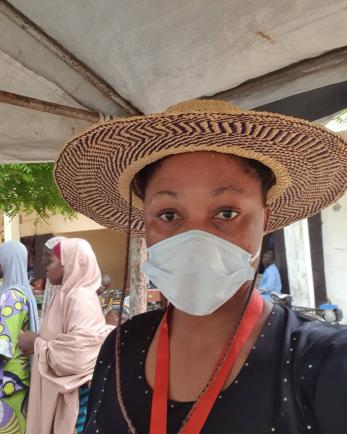
“As an aid worker, I feel my work is to make a difference in the world we live in, to make someone’s life better than what it is and to ease the plight of people that have little hope.”
Clara started working in the sector seven years ago and has been with Mercy Corps for the last two years. She believes a better world is possible and aims to do her part to ensure that.
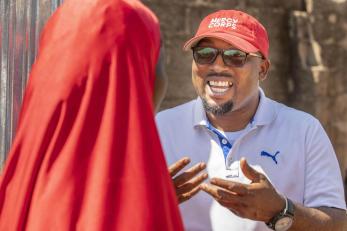
“I am fulfilling my dream of putting smiles on the faces of the people we serve with the programs I have been involved in the last 13 years. Providing them with water and agricultural resources to help them thrive.”
Hugh has always been inspired by humanity, so when he started out his career in the banking sector he was motivated to advocate for the bank to venture into community banking. This venture proved successful as the bank was able to reach rural communities in Jos, Plateau states. Now, 13 years later, he is glad he made the decision to leave the bank and start working in the humanitarian sector which he finds exciting and ultimately rewarding.
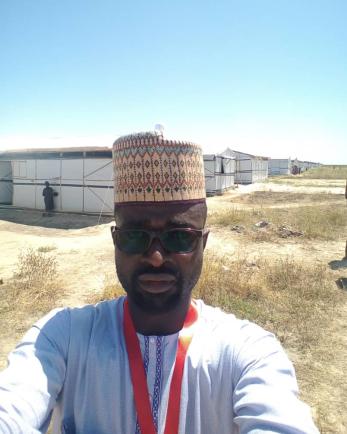
“Working as a humanitarian is an experience that will never be forgotten in a long time. It gave me the opportunity to meet the most vulnerable and marginalized people in our communities. I am proud to be part of a world humanitarian team who are bringing smiles to the faces of millions of vulnerable people on a daily basis.”
Maxwell has been in the humanitarian sector for 12 years and with Mercy Corps for two years, he is passionate about touching the lives of marginalized people. He became a humanitarian because he felt it was the best way to actualize his dreams.
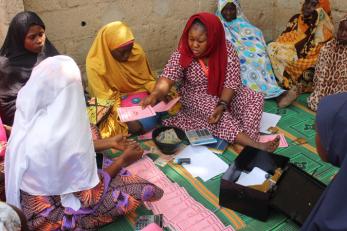
“I am happy that my work helps struggling families in the Northeast to restart their livelihoods through poultry farming and community savings groups.”
Halima loves her job and finds it very fulfilling because she gets to be of help to people in need and create positive changes in communities she works in. She has been working in the NGO sector since 2012 and is currently pursuing a postgraduate degree in Disaster Risk Management and Development Studies from University of Maiduguri.
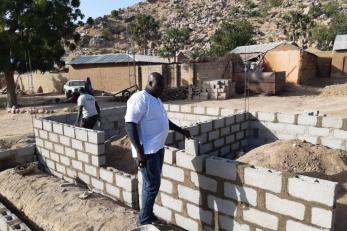
“As a humanitarian, I would say that it is not just a profession but a way of life that demands sacrifice, time and dedication. My aim is to work until disadvantaged groups have reached the same level as the other groups. By doing my part in this work, I am able to see change for good in the society. It's a very satisfying feeling and allows me to continue working with greater energy and motivation.
The biggest challenge is witnessing suffering and hearing stories that break your heart. While we see terrible things on television or read about them in the newspaper, it is hard and frustrating to see it with your own eyes as it unfolds before you, but the fact remains, there is joy when working to provide services to help humanity.”
Ayuba does not feel comfortable when there is injustice in his society and has always felt moved by the sight of hungry children and women that are victims of gender‑based violence. Although he did not plan on having a career in the humanitarian sector, he is glad he found himself in it and has grown to love it. He has been working with Mercy Corps for over three years and hopes to continue being of service.
